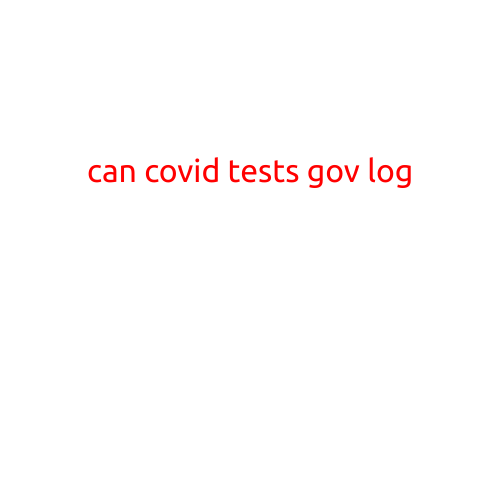
Can COVID Tests Be Governed by Massachusetts?
The COVID-19 pandemic has brought about unprecedented challenges to healthcare systems around the world. In Massachusetts, the state government has been working tirelessly to reduce the spread of the virus and mitigate its impact on the population. One of the key strategies employed to achieve this goal is the widespread use of COVID-19 tests.
The Importance of COVID-19 Testing
COVID-19 testing is a crucial component of the state’s efforts to combat the pandemic. By rapidly identifying cases of the virus, healthcare providers and public health officials can take targeted measures to contain outbreaks and prevent further transmission. Massachusetts has been at the forefront of COVID-19 testing efforts, with widespread testing available in hospitals, clinics, and community-based settings.
Governance of COVID-19 Tests in Massachusetts
While the importance of COVID-19 testing cannot be overstated, the governance of these tests is equally crucial. The Massachusetts government has established a robust framework to regulate the testing process, ensuring that tests are accurate, reliable, and safe. Here are some key aspects of the governance of COVID-19 tests in Massachusetts:
- Statewide Testing Strategy: The Massachusetts Department of Public Health (DPH) has developed a statewide testing strategy, aimed at identifying cases of COVID-19 and tracing contacts. The strategy involves a combination of polymerase chain reaction (PCR) tests, rapid antigen tests, and serological tests.
- Licensing and Certification: The Massachusetts Department of Public Health (DPH) licenses and certifies medical laboratories and healthcare facilities that conduct COVID-19 testing. This ensures that testing is performed in a safe and regulated environment.
- Testing Protocols: The DPH has established standardized testing protocols, including specimen collection, transportation, and processing procedures. These protocols ensure that tests are performed accurately and consistently.
- Reporting and Surveillance: The DPH tracks COVID-19 test results, reporting and surveillance systems to monitor the spread of the virus and adjust strategies accordingly.
Challenges and Opportunities
While the governance of COVID-19 tests in Massachusetts has been effective in reducing the spread of the virus, there are challenges and opportunities that must be addressed:
- Supply Chain Disruptions: The global shortage of COVID-19 testing supplies has posed significant challenges to Massachusetts’ testing efforts.
- Rapid Antigen Testing: Rapid antigen tests, which provide quick results, may not be as accurate as PCR tests. This has led to concerns about false negatives and the need for further validation of these tests.
- Equity and Access: While COVID-19 testing is widely available in Massachusetts, there are concerns about equity and access, particularly in underserved communities.
- Vaccine Distribution: The distribution of COVID-19 vaccines will require coordination with testing efforts to ensure that those who test positive receive timely treatment and that those who are at risk receive vaccinations.
Conclusion
The governance of COVID-19 tests in Massachusetts is crucial to reducing the spread of the virus and mitigating its impact on the population. While there are challenges and opportunities that must be addressed, the state’s robust testing framework has been instrumental in controlling outbreaks and saving lives. As the state continues to navigate the pandemic, it is essential to prioritize equity, access, and vaccine distribution to ensure that all Massachusetts residents have access to the testing and treatment they need.





